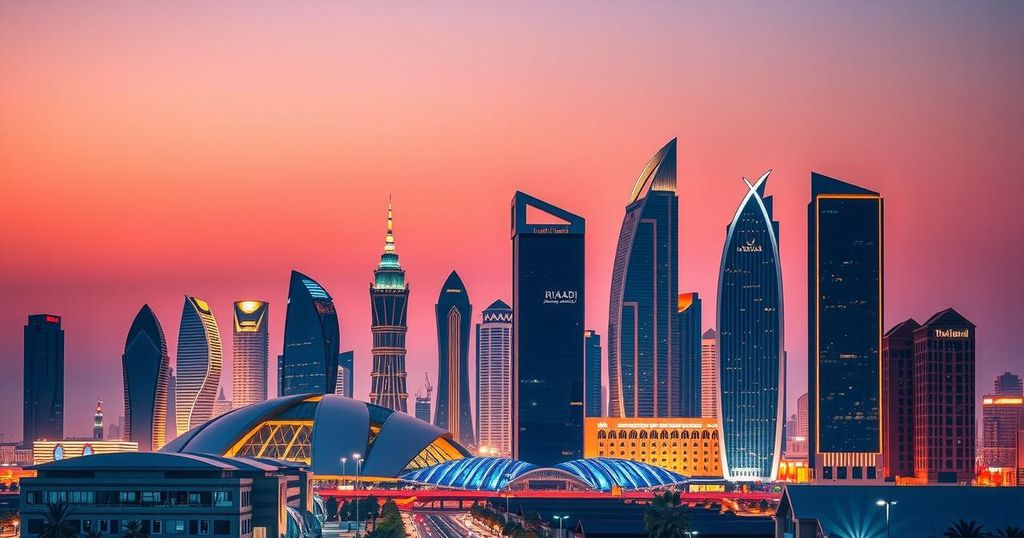Dmitry Polyanskiy Discusses Geopolitical Dynamics and Russia’s Role in Global Conflicts

Dmitry Polyanskiy from Russia criticized the Biden administration for escalating the Ukraine conflict and praised the Trump administration’s more realistic approach. He acknowledged Saudi Arabia’s emergence as a diplomatic hub while addressing challenges in Gaza, Sudan, and Syria, stressing the importance of Arab unity and Russia’s supportive role. Polyanskiy also elaborated on Russia’s commitment to assisting Syria’s transitional period and its longstanding friendships in the region.
On the recent edition of the Arab News program “Frankly Speaking,” Dmitry Polyanskiy, Russia’s first deputy permanent representative to the UN, suggested that the previous U.S. administration exacerbated the complexities of the Ukraine conflict. He stated that the Biden administration contributed to escalating tensions, ultimately leading to the onset of Russia’s military operations in Ukraine. Polyanskiy argued that the United States played a more harmful role than a constructive one in managing the crisis.
Polyanskiy contrasted this with the approach of Donald Trump’s administration, asserting that it adopted a more realistic view of the conflict. He commended Trump’s administration for recognizing the realities on the battlefield and proposing viable plans for achieving peace. The recent talks held in Riyadh sought a ceasefire agreement over the Black Sea, indicating Saudi Arabia’s rising influence in international diplomacy, an evolution welcomed by Polyanskiy.
During the discussions, Polyanskiy expressed appreciation for Saudi Arabia’s role in facilitating diplomatic negotiations involving key global players. He emphasized that the nation could solidify its position as a diplomatic center in addressing the Russia-Ukraine situation. Furthermore, he acknowledged the broader scope of the U.S.-Russia negotiations, which addressed issues beyond Ukraine, including the ongoing crisis in Gaza, while reiterating Russia’s support for a two-state solution regarding the Israeli-Palestinian conflict.
Polyanskiy highlighted the limitations of Russia’s influence in pressuring Israel but maintained that Arab nations must mobilize to foster meaningful advancement toward peace in Gaza. He stressed the necessity of a unified Arab voice in advocating for Palestinian rights and maintaining focus on the issue amid the shifting geopolitical landscape. The effectiveness of the Middle East Quartet was noted as a constructive format for mediation.
Shifting focus to Sudan, Polyanskiy underscored Russia’s support for the Sudanese government led by General Abdel Fattah Al-Burhan, amid ongoing conflict and humanitarian crises. His remarks suggested optimism about military developments favoring the government. Regarding the situation, he firmly rejected claims of famine, asserting that food availability is sufficient, and the primary obstacles lay in distribution.
Additionally, Polyanskiy addressed Syria’s gradual transition post-Assad’s regime, advocating for inclusive governance. He refrained from speculating on hypothetical scenarios regarding Assad’s fate, emphasizing humanitarian accommodation. He maintained that historical ties between Russia and Syria would sustain support during this transitional phase, noting mutual respect and friendship spanning decades. He expressed a commitment to assisting Syria in achieving sustainable development in the future.
In conclusion, Dmitry Polyanskiy’s commentary highlights several interlinked geopolitical issues, encompassing the Russia-Ukraine conflict, the crisis in Gaza, and the situation in Sudan and Syria. He underscores the role of Saudi Arabia as a burgeoning diplomatic hub while stressing the importance of unified Arab efforts for Palestine. Furthermore, his remarks on Russia’s reservations regarding foreign intervention in internal affairs and commitment to Syria’s future underscore the complexities of international diplomacy during these tumultuous times. Through these discussions, Polyanskiy presents a vision for Russia’s role in fostering dialogue, peace, and stability in several global hotspots.
Original Source: www.arabnews.com







